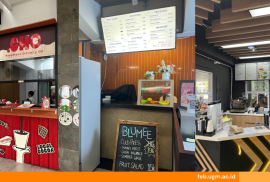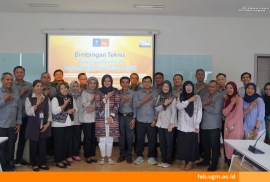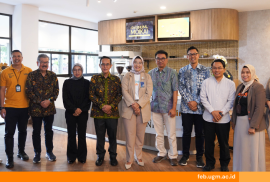Clean water is necessary for the community, including in Yogyakarta City. The high population density in Yogyakarta City drives the increasing demand for clean water among its residents. Data from PDAM Tirtamarta, one of the clean water providers in Yogyakarta City, noted that as of January 30, 2023, 9.23% of the city’s population used PDAM services. This means more than 90% of Yogyakarta City residents rely on groundwater (wells) or other sources for their clean water needs.
Unfortunately, several studies have found that 40% of all Yogyakarta City’s healthy water is contaminated with Escherichia coli bacteria. This bacterial contamination can cause diarrhea and affect the incidence of stunting in the long term. Inappropriate construction or drilling of wells is suspected to be one of the factors causing the E. coli contamination in residents’ wells.
Regulations regarding well construction permits in Yogyakarta City are outlined in Yogyakarta Mayor Regulation 28 of 2013 concerning Groundwater Permits in Yogyakarta City Government. Although this regulation only applies administratively, it states that healthy construction for household needs does not require a permit. This condition is feared to trigger social and economic problems for residents.
This prompted Adelvin Pradana Putra Mujiono, a student of the Economics Study Program at the Faculty of Economics and Business (FEB) UGM, class of 2022, to conduct research on this phenomenon, particularly in the Kemantren Kotagede area, which is a center of tourism and culture in Yogyakarta.
Adelvin conducted the research along with Parahita Janu Arundati (Economics 2022), Syafina Kinaya Amelia (Law 2022), Meidita Farah Widodo (Environmental Infrastructure Engineering 2022), and Sabri Indrajati (Sociology 2022). Their research, titled “Analysis of Low Water Quality in Kemantren Kotagede: Legal Gaps and Socio-Economic Impacts on the Community,” successfully received research grant funds through the 2024 Student Creativity Program for Social Humanities Research (PKM-RSH) from the Ministry of Education, Culture, Research, and Technology (Kemendikbudristek).
Through this research, they aimed to delve deeper into the legal gaps in groundwater usage permits in Yogyakarta City. Additionally, they sought to understand the social impacts and economic losses caused by low water quality in Kemantren Kotagede.
Adelvin explained that their research conducted since January 2024 found that the high microbiological contamination in residents’ wells was due to septic tank waste contaminating groundwater or healthy water.
“Most (58.3%) distance between septic tanks and wells in residential homes in Kemantren Kotagede do not meet safe limits. Meanwhile, the National Standardization Agency (BSN) guideline regarding the distance between septic tanks and wells through the Indonesian National Standard (SNI) is 10 meters,” he said on Wednesday (17/7) at FEB UGM.
On the other hand, Adelvin continued that more central and regional regulations need to be. This is evident from the issuance of the Minister of Energy and Mineral Resources (ESDM) Decree No. 291.K/GL.01/MEM.G/2023 on Groundwater Usage Approval Standards Article 11 Chapter VIII, which explicitly regulates groundwater usage or exploration permits—additionally, Law No. 17 of 2019 concerns water resources, which governs water resource management. However, the Yogyakarta City Government has not yet reprocessed the latest laws, as a new mayoral regulation and a further translation of the new rules on well construction permits and related matters have not been issued.
According to him, the local government can immediately take action with the latest regulations and the phenomenon of contaminated water quality. Thus, the rules formed can act as a preventive and repressive response to groundwater contamination’s short- and long-term impacts.
Other research findings indicate that the Kotagede community is aware of the phenomenon of low water quality in their area. One response shown is the use of water filters as an instrument to purify well water by residents in Prenggan Village, especially the community group living around the Gajahwong River. Fecal waste management in this area is also integrated through a communal Wastewater Treatment Plant (IPAL) built by the Yogyakarta City Government.
“We found that the distance between the communal IPAL and residents’ wells with water filters installed is very close, less than 5 meters. In the future, it is hoped that there will be an evaluation of the optimality of communal IPAL construction near residents’ wells,” he concluded.
Reportage: Kurnia Ekaptiningrum
Sustainable Development Goals










